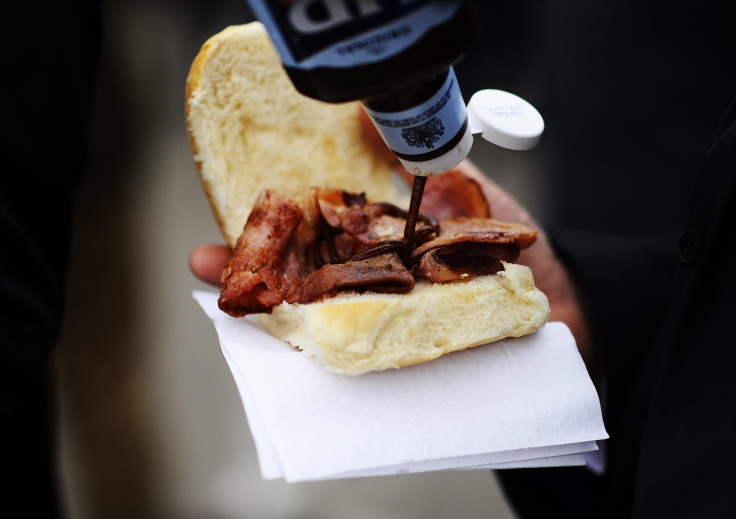Red Meat Cancer Risk Revealed By World Health Organization

UPDATE: 7:15 a.m. EDT -- Processed meat such as bacon, sausage and ham, pose as big a cancer risk as cigarettes, the World Health Organization’s International Agency for Research on Cancer (IARC) said Monday, confirming media reports that had been swirling since last week.
Additionally, red meat is “probably carcinogenic,” the organization reportedly said.
“For an individual, the risk of developing colorectal (bowel) cancer because of their consumption of processed meat remains small, but this risk increases with the amount of meat consumed,” Kurt Straif from the IARC reportedly said Monday.
According to the BBC, the WHO report says that even as little as 50 grams of processed meat a day -- a quantity equivalent to two slices of bacon -- raises the chance of developing bowel cancer by 18 percent.
Original story:
Are bacon and sausages as big a cancer risk as smoking? According to media reports, the World Health Organization’s International Agency for Research on Cancer (IARC) is expected to warn, in an assessment to be released Monday, that red and processed meat are as much a cancer threat as cigarettes.
“IARC/WHO will issue a news release with the detailed outcome of the evaluation on Monday [Oct.] 26, at noon, Paris time [7:00 a.m. EDT], to coincide with a news report in The Lancet Oncology,” the organization said, in a statement released Friday, after media reports of red meat being classified as a cancer risk first emerged.
According to media reports, the IARC is likely to give processed meat the highest carcinogenic risk rating -- a category that includes alcohol, asbestos, arsenic and cigarettes -- and red meat the second-highest one. While the organization refused to comment on the reports before the publication of the outcome of its review, representatives of the meat industry have already accused the body of “dramatic and alarmist overreach.”
“Red and processed meat are among 940 substances reviewed by IARC found to pose some level of theoretical ‘hazard,’” Barry Carpenter, president of the North American Meat Institute, told CNBC. “Only one substance, a chemical in yoga pants, has been declared by IARC not to cause cancer.”
While meat consumption varies widely across the world, in the U.S. and many other developed nations, meat -- red meat, poultry and fish -- constitutes a significant portion of the daily diet. In 2013, for instance, the average American consumed 71.1 pounds of red meat. Moreover, since the estimate by the U.S. Department of Agriculture is for the total population, including babies and children, the average adult consumption is likely much higher.
The U.K.-based World Cancer Research Fund has for several years warned against overconsumption of red meat, citing “strong evidence” that eating red meat or processed meat increases the risk of bowel cancer. However, speaking to the BBC Sunday, Ian Johnson from the U.K.’s Institute of Food Research said that “the size of the effect is relatively small, and the mechanism is poorly defined.”
“It is certainly very inappropriate to suggest that any adverse effect of bacon and sausages on the risk of bowel cancer is comparable to the dangers of tobacco smoke, which is loaded with known chemical carcinogens and increases the risk of lung cancer in cigarette smokers by around 20-fold,” Johnson told the BBC.
© Copyright IBTimes 2024. All rights reserved.






















